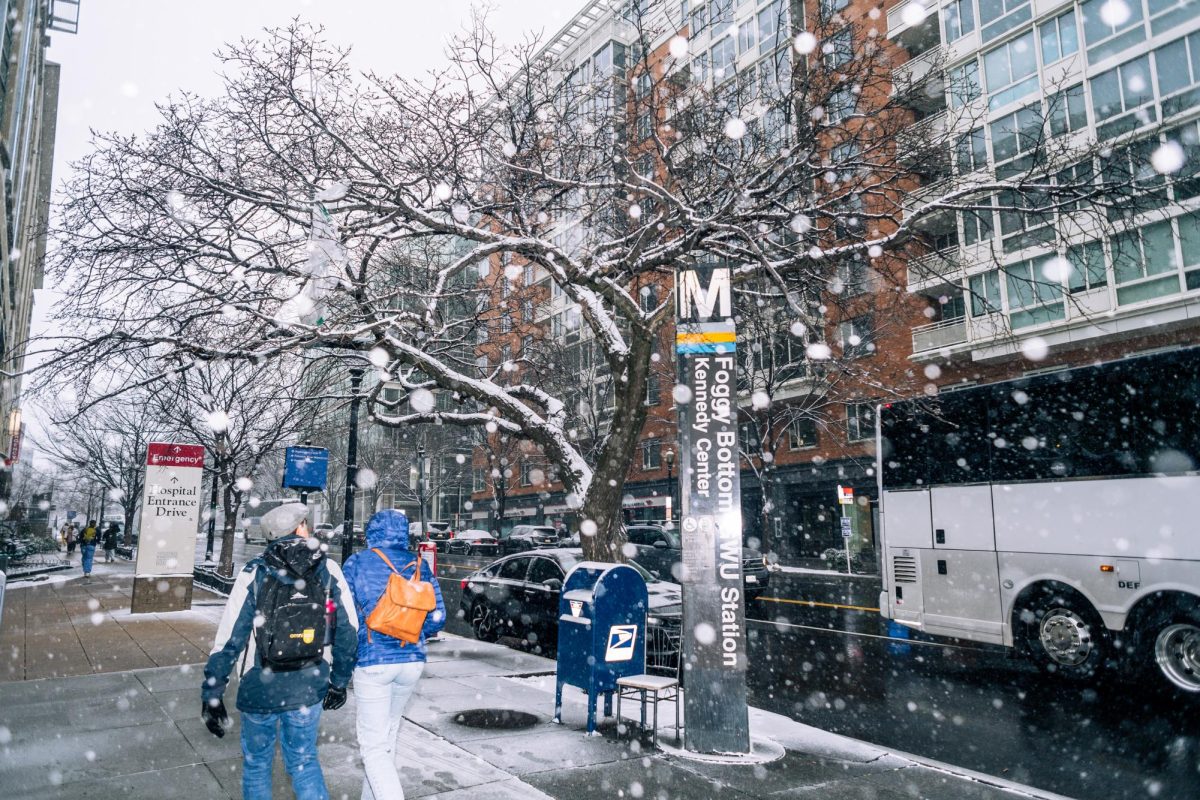GW is building a $1.2 million road that connects the Whitehaven Parkway and Pelham Hall.
The road, which is being built in the next few weeks, will allow construction vehicles easier access to the site where Pelham Hall will be demolished and rebuilt. The upgraded residence hall will have 288 beds – about triple the number of beds the dorm has now – and will also increase the amount of student organization and dining space on the Mount Vernon Campus. The total project will cost about $60 million and should be complete by fall 2010, according to the capital budget.
University Spokesperson Tracy Schario said the road is slightly more expensive than normal road projects because of the shape-retaining structures the slope of the site will require.
“That particular part of the Mount Vernon campus has some pretty deep slopes,” Schario said. “It’s one thing if you’re building on flat and another if you’re building on slopes – it just takes a little bit more.”
The new road will connect the Whitehaven Parkway to the new dorm’s rear exterior. The University plans to use the road for deliveries to Pelham’s new dining hall and to ease disabled and emergency access to the residence hall. Director of Mount Vernon Campus Life Robert Snyder said most students and faculty will still continue to access the residence hall through the campus’ primary access route.
“When you have 280 residents living in a building, you need to have some more direct access to a building, especially for emergency purposes,” Snyder said. “If someone was in a wheelchair, we’ll have a provision to take the Vern Express over there.”
Snyder added that the new road will be particularly useful because it circumvents construction workers’ need to access the construction site through the Mount Vernon campus’ main entrance.
“During the two years the building will be built, the road will be very useful because otherwise we would have heavy truck traffic and contractor traffic from traveling the same roads through which the Vern Express and faculty and students enter the campus,” he said.
Pelham is currently accessible through a perimeter road that loops around the northwest and west portion of the campus, thus the dorm is most easily accessible from the campus W Street entrance.
When the road is complete, the University will begin demolition of the existing Pelham Hall and construction of the new residence hall. Schario said even with the road there will be “residual noise” on the campus, but that the noise will be minimized by “topographic and geographic barriers.”
The new residence hall will include single and double bedrooms with shared living areas and baths. Its lower floors will include a new campus dining facility, student meeting space, student theater space, student fitness facilities, music practice rooms and student storage.






